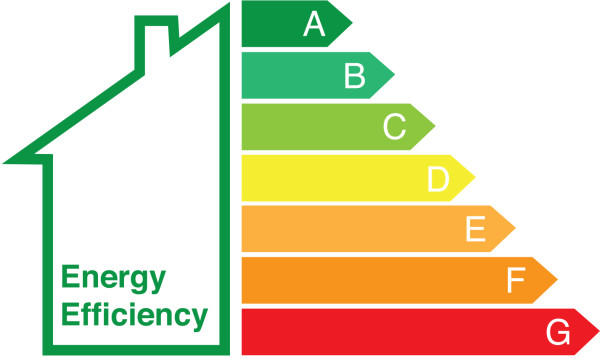
Whether you want to reduce your environmental impact or just get cheaper energy bills, it is always valuable to find ways to make your home more efficient. From electricity to water, there are changes that every homeowner can make that will make a huge impact. So here are ten easy changes that you can make to your home save energy.
1. Replace old appliances
Older appliances are typically far less energy efficient than their modern counterparts. When you come to buy any kind of new appliance you should check the energy efficiency ratings and choose a model that offers the best credentials. Over time, choosing energy efficient appliances will save you money due to the reduction in energy costs. So even if the initial cost of buying a more energy efficient model is more, you will soon make up the difference.

2. Install solar panels
Of course one of the best ways to be more energy efficient is to actually start producing your own energy. A great way to do this is by installing solar panels on your roof – collecting solar energy can help power your home and in times of surplus you will actually be contributing to the grid.
Of course one thing that can put people off the idea of solar panels is the cost – but don’t let money get in the way. While the initial outlay can be comparatively high, the average solar panel system repays its upfront costs within 8 to 10 years. This means that you can consider that cost an investment rather than money that has been lost.

3. Invest in a smart thermostat
It should first be noted that a smart thermostat is different from a smart meter, which are being installed by energy companies to provide homeowners will a better understanding of their power usage. A smart thermostat is a device that you can be programmed to allow you to control when your heating turns on and off.
This means that you don’t just have to rely on a pre-set thermostat – if the day turns out to be really hot and you don’t need any heating at all, the thermostat can be turned off through an app. It’s also possible to set it up so to fit around your schedule, so you can set it to turn on just before you get home from work so you walk into a warm house.

4. Utilise insulation in your loft
If you have a loft it can be one of the most common places that your home will lose its heat. It is important, then, that you should properly insulate your loft in order to heat the warm air in the rest of the house and the cold air out.

5. Collect rainwater
If you have a garden that requires irrigating or plants that need regular watering, you can improve your efficiency by collecting rain water. You can cheaply buy a water butt for your garden which can collect rainwater from downpipes on your house, garage or shed. This will stop you having to water your plants and lawn with water from the mains – and this has the additional benefit that plants tend to prefer rainwater to tap water anyway!

6. Be smart with the sun
Over the winter, many homeowners make the mistake of leaving their curtains closed all day. It is actually a much better idea to allow the sun in during the daylight hours, as this will naturally warm the house.

7. Hang thicker curtains
On the same note, it’s worth remembering that when the sun isn’t shining and it is cold outside, keeping your curtains closed is definitely the right thing to do. As your windows are naturally thinner than the walls, this is one of the places that cold air can most easily enter the property. In fact, you will generally be more energy efficient by hanging a thicker pair of curtains to keep the heat in better.

8. Upgrade to double glazing
Taking it a step further, if your home doesn’t already have double glazing, now is the right time to upgrade. Installing double-glazing on a single glazed detached house could save you as much as £110 per year in your energy bills alone.

9. Save water in the shower
It’s a smart idea to change your current showerhead to a water-saving version. If you spend a long time in the shower, it is likely that you are consuming more water than you would by taking a bath. Fitting a water-saving showerhead will cut down on the amount of water you use significantly.

10. Keep track of your consumption
This is where the smart meter can come in useful. It is the case that most people are very aware of how much energy they are using on a day-to-day basis, but a smart meter allows you to keep track of it all times.





 POSTED BY
POSTED BY 

